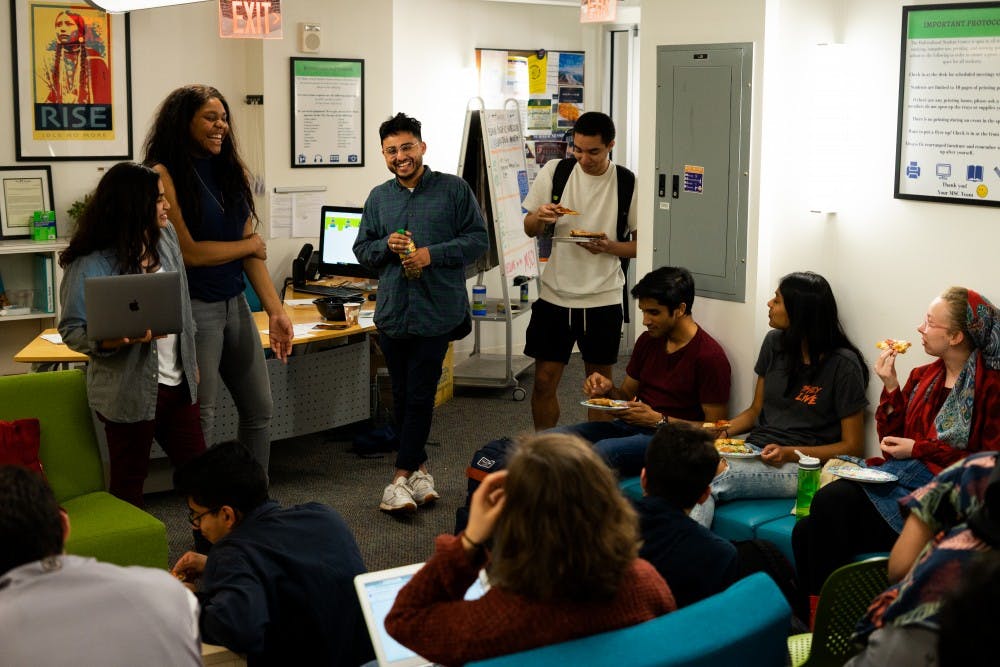Roughly 20 students met Tuesday night in the Multicultural Student Center for a public event titled “A Discussion on Homogeneous Spaces.” The discussion was organized by the Minority Rights Coalition and Student Hip-Hop Organization and led by second-year College student Alisha Kohli and third-year College student Camille Horton.
Kohli said that the idea of space for minority students is multi-faceted, as it is important to have spaces that cater to students from a wide variety of cultural backgrounds rather than only appealing to a select few.
“Camille and I both recognize that [MRC and SHHO] are very minority-dominant spaces, but they're not one specific identity,” Kohli said. “When you think of minority groups on Grounds, most of them are homogenous — central to one identity — which I feel are very, very important. But I also think that having spaces that are minority dominant — but of different minorities — offers a very unique opportunity to spread awareness among each other within the context of intersectionality.”
The event concentrated on the value of physical space designated to minority students as it relates to the notion of “self-segregation,” friendships and intersectional identity.
Students discussed the stigma surrounding the term “self-segregation” and whether or not the term holds any validity. Over the years, minority student groups have been criticized for purportedly promoting the siloing of identity — however, participants explained “self-segregation” as a shame-based term rooted in power dynamics. Students noted that rather than serving to stimulate “self-segregation,” minority and multicultural student spaces provide reprieve from “racial battle fatigue,” or the mental and physical effects that minority students in historically white settings face as a result of navigating the place’s complex racial histories and tensions.
Currently, the Multicultural Student Center and the LGBTQ Center offer physical space to underrepresented and marginalized communities on Grounds — which comprise roughly a third of the University community — yet the MSC hits maximum capacity at 49 people. The discussion also explored the allocation of student space on Grounds and reclamation of spaces like the Kaleidoscope Room, which opened in 2004 as the “Center for Cultural Fluency” before being repurposed in 2010.
Participants also discussed the ways in which they understand homogeneous spaces from a standpoint of intersectionality or the overlap of multiple minority identities. Some students detailed how they “tone down” certain identities in different situations.
Horton said that the conversation was both encouraging and stimulating, and that she hoped it served as a safe place for students who have felt discouraged or belittled by the lack of space for minority students on Grounds.
“It was a reaffirming conversation that we had today but also a learning one,” Horton said. “We tried to make a workshop on how to deal with certain statements that a lot of people had already dealt with and are dealing with to help each other process. There's a lot of room for — not just collaboration — but for helping each other get through the day and also helping each other advocate and hope for a larger project.”
Correction: This article previously misnamed the Minority Rights Coalition as the Minority Students Coalition, and has been updated to reflect this error.







